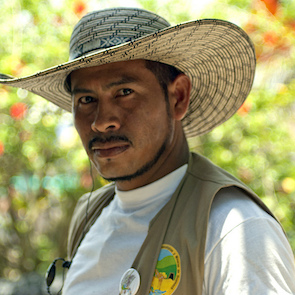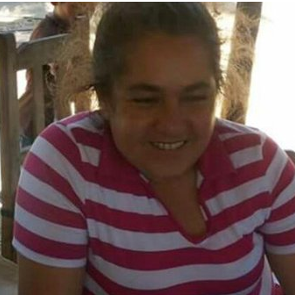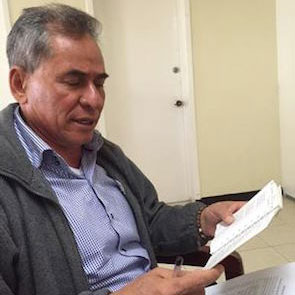Human Rights Defenders Critical for Post-Accord Justice in Colombia
The announcement of the ceasefire between the Colombian government and the FARC-EP is a historic moment that we hope will mark a turning point in the history of Colombia. It offers the Colombian people an opportunity to make a break with the endemic violence of the past. The direct reference to the protection of human rights defenders (HRDs) in the peace agreement is one more reason to celebrate.
To succeed, this long-awaited peace agreement needs the active participation of civil society. The state must recognise civil society's vital role in mapping out a future for Colombia based on democratic values, respect for the law and human rights. Central to that vision is the need for the security and protection of HRDs. The promises made in the Peace Agreement seem to address this issue squarely. The Agreement promises: action against criminal organisations which carry out massacres or murders or which target human rights defenders or political activists; the creation of a new political culture in which there will be no room for the use of arms in a political life rooted in democratic values; guarantees for the promotion and protection of human rights and strengthening the administration of justice. If implemented as outlined this would represent a definitive break with the past.
"To succeed, Colombia's long-awaited peace agreement needs the active participation of human rights defenders." - Mary Lawlor, Executive Director, Front Line Defenders
However the task facing the government in the implementation of this agreement is both complex and challenging and the situation on the ground is not encouraging. Given the progress made in the peace talks over recent months we might have expected to see a corresponding improvement in the human rights situation in the country. The opposite has been true. The ability of HRDs to carry out their peaceful human rights work has continued to deteriorate steadily. Since the early 1980s there have been ongoing attempts to demobilise the paramilitaries and reabsorb them into society. This should have resulted in a gradual reduction in the levels of violence but in fact the result has been a steady increase in violence in which HRDs have been repeatedly targeted. Most of these killings go unpunished, as paramilitaries control or have allies among many members of the state’s institutions, such as the military and the judiciary. The government’s inability, or lack of will to date, to combat paramilitaries is a threat to the implementation of the Peace Agreement. It also jeopardises the legitimate work of HRDs in the country.
Colombia is still one of the most dangerous countries in the world for human rights defenders (HRDs). In fact, violence against HRDs continues to escalate. Between January and March 2014, local NGO “Somos Defensores” documented 16 killings of HRDs. During the same period in 2015 this number increased to 19 and to 20 for the corresponding period in 2016. The level of killings is relentless. 1 Front Line Defenders, which ranked Colombia as the country with the most killings of HRDs in 2015, is calling on the government to take concrete steps to ensure that Colombia will not top the global list of killings of HRDs again in 2016.
Nevertheless the killings continue. Nelly Amaya Pérez was killed on the 16th of January 2016, in San Calixto. Mother of three, the political activist was the President of the Junta de la Acción Comunal del Barrio Guamalito (Community Action Board of Guamalito Neighbourhood), a member of the Asociación Campesina del Catatumbo – Ascamcat (Peasant Association of Catatumbo) and a member of the Movimiento de Víctimas de Crímenes de Estado – MOVICE (Movement of Victims of State Crimes). She was targeted for her work as a HRD, seeking justice for human rights violations committed by the state and paramilitary groups. On 7 March 2016, environmental rights defender William Castillo Chima was shot dead in Villa Echeverry, in the municipality of El Bagre, Antioquia. These are just two cases among many.
HRDs in Colombia also face intimidation, arbitrary detention, enforced disappearances, physical assaults, torture, illegal searches and stigmatisation. The case of David Ravelo Crespo typifies many of the problems in the criminal justice system in Colombia and underscores the urgent need for the promised reform of the system. David, a finalist for the 2013 Front Line Defenders Award, was sentenced to serve over 18 years in prison on fabricated and politically motivated charges. This followed an unfair trial during which the main evidence against him was given by a former paramilitary member who is now being prosecuted by the state for perjury. The case of David Ravelo Crespo is not unique. There are an estimated 3,000 cases pending review because of the involvement of false witnesses. The lack of trust in the judicial system is an impediment to the establishment of long lasting peace and to the development of a safe environment in which HRDs can work.
The peace agreement recognises the endemic problems relating to the weakness of the state in confronting organised criminal groups, stating that the national government will ensure the implementation of the “necessary measures to effectively strengthen actions against criminal behaviours and organisations, as part of this agreement, that threaten the peace-building measures”. Yet, the focus on “criminal behaviours” in this statement does not explicitly address the issue of police and army complicity in attacks on human rights defenders or the fact that the criminal justice system itself has been largely discredited.
The Special Rapporteur on the promotion of truth, justice, reparation and guarantees of non-recurrence, Pablo de Greiff, recently stated: “one of the simplest ways of enabling civil society to contribute to preventive work is simply to refrain from persecuting, intimidating and harassing civil society representatives, including human rights defenders”.
Colombia has embarked on a new path with the signing of this peace accord. But if it is to lead to long-term stability and justice for all Colombians, the active, free and safe participation of human rights defenders in rebulding the country is critical.



